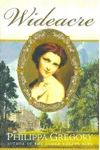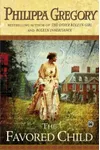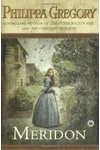Step into the scandalous world of Wideacre, where passion, betrayal, and a fierce love for land ignite a historical fiction saga unlike any other! Philippa Gregory’s Wideacre trilogy, set in 18th-century England, follows the Lacey family’s tumultuous journey through a web of ambition and moral decay. With its bold heroine, Beatrice Lacey, and provocative themes, this series both captivates and shocks, inviting readers to explore the darker corners of human desire.
Unlike Gregory’s later Tudor novels, Wideacre dives into a fictional family’s saga, blending lush Georgian landscapes with taboo-breaking drama. It’s a thrilling, if controversial, ride that’s perfect for fans of historical fiction craving something daring and unforgettable.
How Wideacre Began
Philippa Gregory, a historian with a PhD in 18th-century literature, penned Wideacre in 1987 as her debut novel while completing her doctorate. Inspired by the era’s social upheavals, like the enclosure acts that privatized common lands, Gregory crafted a story rooted in historical realities but driven by her vivid imagination. The trilogy—Wideacre, The Favoured Child, and Meridon—was born from her fascination with women’s limited power in a patriarchal world, channeled through Beatrice’s ruthless defiance of societal norms.
Gregory wrote Wideacre by hand in a notebook, boldly labeling it a bestseller before it was published. Her confidence paid off: the novel sold worldwide, launching her career as a leading voice in historical fiction and setting the stage for a trilogy that remains a polarizing yet enduring work.
The Heart of Wideacre
The trilogy begins with Wideacre, where Beatrice Lacey, a strong-willed heiress, schemes to control her family’s estate, defying 18th-century laws that favor male heirs. Through seduction, betrayal, and even murder, her obsession with Wideacre Hall drives a narrative filled with shocking twists. The Favoured Child shifts to the next generation, following cousins Julia and Richard, whose secret betrothal and rivalry echo Beatrice’s legacy of corruption. Meridon, the final book, introduces Meridon, a Romany girl tied to Wideacre’s past, who seeks to break the cycle of greed and restore balance.
The series’ themes—power, gender, and ambition—pulse through its vivid Georgian setting, from the rolling Sussex downs to the decaying grandeur of Wideacre Hall. Gregory’s prose is rich and immersive, blending historical detail with gothic intensity. Yet, the trilogy’s unflinching portrayal of taboo topics like incest, violence, and moral decay makes it a divisive read, thrilling some readers while unsettling others.
Beatrice, a complex anti-heroine, embodies the series’ core: a woman fighting for agency in a world that denies it, even if her methods are monstrous. This blend of feminist undertones and dark drama sets Wideacre apart from traditional historical romances, offering a raw exploration of human nature.
Why Wideacre Resonates
Wideacre’s impact lies in its fearless storytelling and Gregory’s ability to humanize flawed characters. While controversial, the trilogy has a cult following among historical fiction fans for its bold take on women’s struggles and its vivid depiction of 18th-century life. It paved the way for Gregory’s later successes, like The Other Boleyn Girl, proving her knack for blending history with gripping drama.
Decades later, Wideacre remains a testament to Gregory’s daring debut, inviting readers to wrestle with its moral complexities and lose themselves in its lush, turbulent world. Its legacy endures as a provocative entry in historical fiction, sparking debate and fascination in equal measure.
- Publication Years: 1987 (Wideacre), 1989 (The Favoured Child), 1990 (Meridon)
- Number of Books: 3
- Setting: 18th-century England
- Author: Philippa Gregory
Ready to dive into a world of passion and scandal? Grab Wideacre and uncover the dark allure of the Lacey family’s saga!


